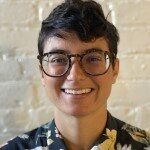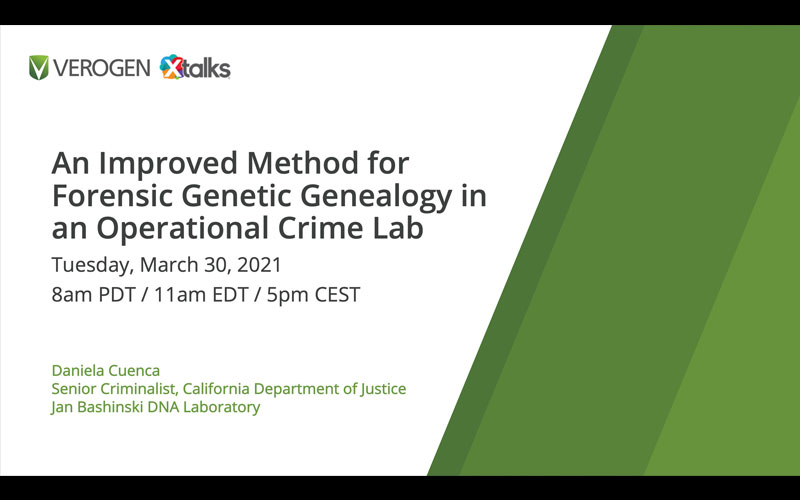Forensic genetic genealogy is a powerful tool for investigative lead generation for the identification of unknown remains, solving cold cases and innocence projects. The traditional forensic genetic genealogy workflow combines a DNA profile generated using microarrays with a database to identify genetic relatives. Though this method has successfully resolved over 200 cases, it fails to address the challenges of forensic samples and operational laboratories, introducing consumer privacy concerns, broken chain of custody and limited implementation utility. An improved forensic genetic genealogy workflow addresses these limitations by combining targeted sequencing designed for poor quality samples with a new algorithm for calculating long-range kinship, on a platform that can be readily integrated into an operational setting.
This webinar will walk through the typical forensic genetic genealogy workflow and compare how the improved process performs against the traditional and alternative approaches, both in assay sensitivity and analysis performance. There will be a mock case study, demonstrating sample confirmation out to a second cousin. This will include a detailed look at the interpretation and statistical results of the targeted assay compared to array-based direct-to-consumer genotyping, including strengths and limitations. Lastly, several practical considerations for implementation into an operational laboratory, as well as best practices and tips for success, will be shared.
What You Will Learn
- How the basic genetic genealogy process works
- A comparison of microarray, whole-genome sequencing and targeted sequencing technologies for workflow, outcome success and utility in an operational lab
- A case study on long-range kinship determination using a targeted sequencing approach
- Best practices and tips for success during implementation
Who Should Attend?
- Government forensic lab personnel
- Commercial/private testing forensic lab personnel
- Academics in related disciplines (forensic science, DNA sequencing)
- Law enforcement personnel
- Legal personnel
Featuring

Daniela Cuenca
Senior Criminalist California Department of Justice, Jan Bashinski DNA Laboratory

